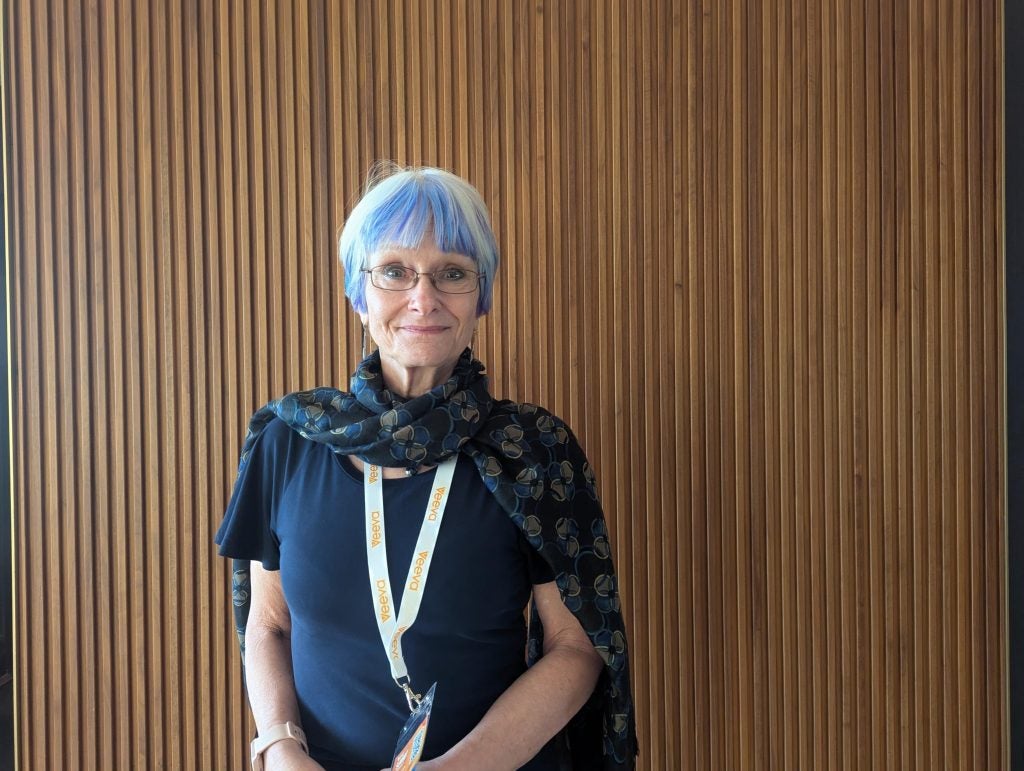
The field of radiopharmaceuticals is growing rapidly, with a real buzz in oncology around emerging therapies. Radiopharmaceuticals are drugs that contain, among other ingredients, radioactive forms of chemical elements called radioisotopes.
The US radiopharmaceutical drugs space saw a 550% increase in total deal value of venture capital (VC) deals, from $63m in 2017 to $408m in 2023, according to GlobalData analysis.

Discover B2B Marketing That Performs
Combine business intelligence and editorial excellence to reach engaged professionals across 36 leading media platforms.
GlobalData is the parent company of the Clinical Trials Arena.
Big pharma companies are trying to jump on the radiopharmaceutical train, with both BMS and Eli Lilly making acquisitions. BMS signed a deal at the end of last year to acquire RayzeBio for $4.1bn while Eli Lilly signed a $1.4bn deal in October 2023 to purchase Point Biopharma. Lilly has since partnered with Radionetics and Atkis.
Liz Coxon, head of global clinical operations at German radiopharmaceutical group ITM-Oncologics, says that while research is on the up, there are still several complexities that add additional red tape to these kinds of studies which need to be addressed by the industry to allow therapies to progress.

Opinions and views expressed in this interview are those of Liz Coxon and do not necessarily reflect the views of ITM-Oncologics.

US Tariffs are shifting - will you react or anticipate?
Don’t let policy changes catch you off guard. Stay proactive with real-time data and expert analysis.
By GlobalDataAbigail Beaney (AB): Can you explain some of the red tape that ITM faces when setting up and running these studies?
Liz Coxon (LC): One of the biggest complexities of any clinical trial in this therapeutic area is the nature of the product itself. Radiopharmaceutical clinical trials are on a new level compared to other therapeutics because you must take into account the fact you are dealing with very targeted treatment, which is a big plus with treating the actual cancer cells. You are also talking about a product with a very short shelf life, so you have to work out the logistics of getting the product to the trial site – this needs to be done in hours, or maybe a maximum of a day or two. Therefore, it is a complex mechanism to organise all your clinical trial supplies.
On top of all of this, you have one of the biggest headaches, which is the very nature of the product being radioactive. Therefore, you end up in a situation where only certain airlines will take the investigational product. Even though the dosage of the clinical trial product is no more than needed for the treatment, and it is packaged according to the regulations, they can still be perceived as hazardous products. You therefore first must identify the right airlines plus the airports will accept them. Even if you have organised that, there is also the overriding right for any pilot to refuse to take a product if they decide so. We have been in a situation where we were planning to treat a patient in Australia, and the supplies were ready to be shipped from a site in Canada, but the pilot refused to take the product onto his plane because he saw it was radioactive.
One way to tackle these problems is to plan very well and ensure that everyone on the internal team has up-to-date information on the airlines when they plan all these shipments. You also must do mock shipments in advance to make sure that the route works and that it gets there on time – you cannot just assume it will work.
For the clinical trial itself, you are talking about giving small doses that will be targeted to a certain cancer cell, to treat and kill that cancer cell, it is treating just the cancer, not the whole body. You are still putting radioactive material into patients and that adds limitations when you are drawing all necessary samples as to how you will get these analysed.
Samples may have a degree of radioactivity, and the logistics of finding central labs with the facilities to do that kind of analysis can be very difficult. You therefore tend to end up using local labs and hospitals that have the infrastructure to do this kind of analysis of radioactive samples.
Finally, you also have to consider regulations going from country to country, and they all vary. Regulations in some countries might be very restrictive as to how long a patient must be maintained in a hot room (a room in which the patient must be held because of potential radioactivity still present). On top of the pharmaceutical regulatory agencies, some countries also have radio-nuclear authorities that will review the study. We also need to understand how that works alongside the regulatory agency because the radio-nuclear agency is not the standard authority.
AB: How difficult is it to set and abide by protocols given the complexities you face?
LC: You put in a lot of contingency planning and make sure to have a very good network of communication set up with the sites. It’s important to communicate every step of the way and ensure there is a very quick turnaround for any problems raised, to be reviewed internally, and then document everything within a quality system.
You must put the patient’s interests at the heart and make sure there is adequate cover for the patient to be maintained with adequate treatment. If there were to be problems in the delivery of the product, there would be automatic rescheduling to get another product available and over to them. You have to ensure that everything like this is documented and communicated and that all processes are defined thoroughly upfront.
AB: How important is it for you to have good outsourcing relationships with trial partners?
LC: It is critical. ITM has dedicated a lot of time and effort to building up good working relations with key opinion leaders in this space. The company discusses the best ways forward with key opinion leaders and they are critical to our particular knowledge base and how we develop. We are not relying just on external experts, we have brought in our internal experts.
Radiopharmaceutical therapy is quite an interesting therapeutic area because the company itself is 20 years old. We are now running our own clinical trials but the company has been supplying generators and other components for the last 20 years, so it is not new in that area. ITM is one of the experts in radio nuclear production, and this is critical to their established knowledge of the region – they are not sort of an unknown quantity to experts.
AB: How do you balance the finances required to run these studies while managing these outside factors?
LC: This is such a unique area so you need to have the internal expertise to understand it. When we outsource, one of the biggest areas of concern is making sure we bring on board staff who understand this area. A lot of the major CROs [contract research organisations] do so many massive studies in many different therapeutic areas, but we are a niche market in a small patient population, comparably.
Therefore, we have to concentrate on the understanding of our area, and not simply the oncologic side of things, but the radiotherapy side of things. That is critical for our decision-making of who we will work with more than anything. It has to be somebody who understands what the problem areas will be and where the logistical headaches will be to make sure that it is done right. In that respect, the larger CROs that do lots of studies across the board but only have limited knowledge of such niche areas are not the ones that we would go with – we need to know somebody who would talk the same language and understand the same needs. We are not driven by the cheapest option. That is not something you do in this therapeutic area. You get the best-qualified people on board with the best understanding.





